April 7, 2016 •
Oregon Transparency Bill Becomes Law
Oregon Gov. Kate Brown has signed into law a bill requiring lobbyists to file registration statements within three business days of commencing or ceasing representation of a client. The bill also requires each person employing a lobbyist to sign a […]
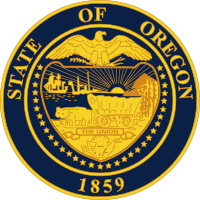 Oregon Gov. Kate Brown has signed into law a bill requiring lobbyists to file registration statements within three business days of commencing or ceasing representation of a client. The bill also requires each person employing a lobbyist to sign a designation of official authorization to lobby within 10 calendar days after the lobbyist files the registration statement.
Oregon Gov. Kate Brown has signed into law a bill requiring lobbyists to file registration statements within three business days of commencing or ceasing representation of a client. The bill also requires each person employing a lobbyist to sign a designation of official authorization to lobby within 10 calendar days after the lobbyist files the registration statement.
The bill has an emergency clause making it effective immediately; however, the bill states it applies to lobbyist registration statements filed on or after January 1, 2017.
April 6, 2016 •
Portland, Oregon to Consider Ethics Reforms
The Portland City Council will consider adopting new ethics reform measures to broaden the revolving door prohibition to two years, and increase the penalties associated with repeated ethics violations. The proposal would also close a loophole in registration requirements, requiring […]
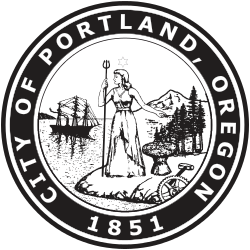 The Portland City Council will consider adopting new ethics reform measures to broaden the revolving door prohibition to two years, and increase the penalties associated with repeated ethics violations. The proposal would also close a loophole in registration requirements, requiring lobbying entities that spend more than $1,000 a quarter on lobbying activities to register.
The Portland City Council will consider adopting new ethics reform measures to broaden the revolving door prohibition to two years, and increase the penalties associated with repeated ethics violations. The proposal would also close a loophole in registration requirements, requiring lobbying entities that spend more than $1,000 a quarter on lobbying activities to register.
A separate ordinance requiring political consultants working with Portland politicians to meet certain reporting and registration requirements will also be considered.
The new ordinances will be introduced at the council meeting on April 13, 2016.
March 16, 2016 •
Proposed Lobby Law Changes Up for Public Comment in Portland
The City Auditor has announced a comment period for potential changes to the city’s lobbying code. The significant changes include closing a loophole in registration requirements by establishing a $1,000 registration threshold. Other changes include broadening revolving door restrictions and […]
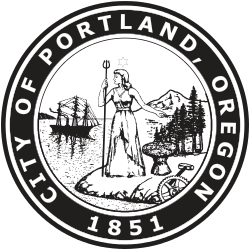 The City Auditor has announced a comment period for potential changes to the city’s lobbying code. The significant changes include closing a loophole in registration requirements by establishing a $1,000 registration threshold. Other changes include broadening revolving door restrictions and increasing penalties for repeated violations.
The City Auditor has announced a comment period for potential changes to the city’s lobbying code. The significant changes include closing a loophole in registration requirements by establishing a $1,000 registration threshold. Other changes include broadening revolving door restrictions and increasing penalties for repeated violations.
The comment period is open from now until March 30, 2016.
March 4, 2016 •
Oregon Legislature Adjourns
The Legislature adjourned sine die on Thursday, March 3, 2016. Before adjourning, lawmakers passed House Bill 4134 to reduce the time frame for lobbyist registration requirements. Gov. Brown has 30 days to consider the bill, and any other bill not […]
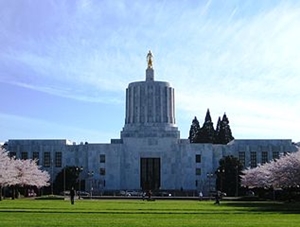 The Legislature adjourned sine die on Thursday, March 3, 2016. Before adjourning, lawmakers passed House Bill 4134 to reduce the time frame for lobbyist registration requirements.
The Legislature adjourned sine die on Thursday, March 3, 2016. Before adjourning, lawmakers passed House Bill 4134 to reduce the time frame for lobbyist registration requirements.
Gov. Brown has 30 days to consider the bill, and any other bill not reaching her desk is now dead.
March 3, 2016 •
Transparency Bill Passes Oregon Legislature
House Bill 4134, a bill tightening timelines for reporting for lobbyist’s clients and lobbyist registration, has passed both the Oregon House and Senate, and will head to Gov. Brown’s desk for approval. The bill requires lobbyists to register within three […]
 House Bill 4134, a bill tightening timelines for reporting for lobbyist’s clients and lobbyist registration, has passed both the Oregon House and Senate, and will head to Gov. Brown’s desk for approval. The bill requires lobbyists to register within three business days after meeting the threshold instead of the current 10 day time period.
House Bill 4134, a bill tightening timelines for reporting for lobbyist’s clients and lobbyist registration, has passed both the Oregon House and Senate, and will head to Gov. Brown’s desk for approval. The bill requires lobbyists to register within three business days after meeting the threshold instead of the current 10 day time period.
The bill also requires a client or employer of a lobbyist to sign an authorization for the lobbyist within 10 calendar days after the lobbyist files a registration statement.
The bill will become immediately effective if approved by Gov. Brown.
January 13, 2016 •
Campaign Finance Changes Recommended in Oregon
A task force on campaign finance reform has recommended changes to the Oregon Constitution which would allow limits to be placed on political contributions. The task force urged the Legislature to make the changes by approving a constitutional amendment allowing […]
 A task force on campaign finance reform has recommended changes to the Oregon Constitution which would allow limits to be placed on political contributions. The task force urged the Legislature to make the changes by approving a constitutional amendment allowing limits to be enacted by either the Legislature or a ballot measure.
A task force on campaign finance reform has recommended changes to the Oregon Constitution which would allow limits to be placed on political contributions. The task force urged the Legislature to make the changes by approving a constitutional amendment allowing limits to be enacted by either the Legislature or a ballot measure.
Currently, Oregon is one of only six states with no campaign spending limits. The Legislature will consider the recommendation at the beginning of this year’s legislative session, which kicks off on February 1.
November 23, 2015 •
Oregon Government Ethics Commission Announces Release Date for Online Filing System
The Oregon Government Ethics Commission has announced the date their new online filing system will go live for lobbyist registration. Starting December 15, lobbyists should be able to register through the new online system for 2016. The online system has […]
 The Oregon Government Ethics Commission has announced the date their new online filing system will go live for lobbyist registration.
The Oregon Government Ethics Commission has announced the date their new online filing system will go live for lobbyist registration.
Starting December 15, lobbyists should be able to register through the new online system for 2016.
The online system has been planned since 2007, and aims to increase transparency by allowing the public to view lobbying and public official financial disclosures online.
September 11, 2015 •
Recall Campaign to Continue in Oregon
The Oregon Office of the Secretary of State has ruled a recall campaign against state Sen. Floyd Prozanski did not violate election law to collect the signatures it turned in. This ruling means the recall effort will be able to […]
 The Oregon Office of the Secretary of State has ruled a recall campaign against state Sen. Floyd Prozanski did not violate election law to collect the signatures it turned in.
The Oregon Office of the Secretary of State has ruled a recall campaign against state Sen. Floyd Prozanski did not violate election law to collect the signatures it turned in.
This ruling means the recall effort will be able to continue.
The secretary of state has until Monday to check the 10,027 signatures collected. In order for a recall election to be called, there need to be 8,415 valid signatures from voters in the senator’s district.
If there are enough valid signatures, the election would have to be held before October 23.
July 22, 2015 •
Oregon Ethics Commission to Expand to Nine Members
Gov. Kate Brown signed House Bill 2019 into law, expanding the membership of the Oregon Ethics Commission from 7 members to 9, effective July 1, 2016. Lawmakers passed many ethics reforms during the 2015 legislative session as a result of […]
 Gov. Kate Brown signed House Bill 2019 into law, expanding the membership of the Oregon Ethics Commission from 7 members to 9, effective July 1, 2016.
Gov. Kate Brown signed House Bill 2019 into law, expanding the membership of the Oregon Ethics Commission from 7 members to 9, effective July 1, 2016.
Lawmakers passed many ethics reforms during the 2015 legislative session as a result of the ethics scandals and resulting resignation of former Gov. John Kitzhaber.
February 13, 2015 •
Oregon Governor Resigns Effective 2/18/15
Gov. John Kitzhaber announced he will resign, effective February 18, 2015. The governor is the target of a criminal investigation involving payments he authorized to his fiancée, Cylvia Hayes, as a paid consultant to the state. The first couple was […]
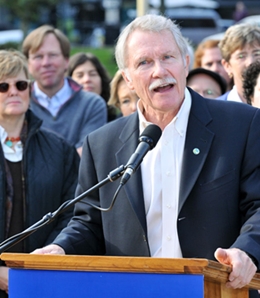 Gov. John Kitzhaber announced he will resign, effective February 18, 2015. The governor is the target of a criminal investigation involving payments he authorized to his fiancée, Cylvia Hayes, as a paid consultant to the state. The first couple was also named in three ethics complaints from 2014 surrounding the consulting payments.
Gov. John Kitzhaber announced he will resign, effective February 18, 2015. The governor is the target of a criminal investigation involving payments he authorized to his fiancée, Cylvia Hayes, as a paid consultant to the state. The first couple was also named in three ethics complaints from 2014 surrounding the consulting payments.
Earlier this week, top state leaders, including Senate President Peter Courtney and House Speaker Tina Kotek, told Kitzhaber he should resign as details of the scandal began to unfold.
Secretary of State Kate Brown will become the governor of Oregon as a result of Kitzhaber’s resignation.
Photo of Gov. John Kitzhaber by Jonathan Maus on Wikipedia Commons.
February 11, 2015 •
Oregon Senate Bill Proposes Political Contribution Limits
Prompted by Secretary of State Kate Brown, a bill in the Oregon Senate would impose campaign contribution limits in a state where contributions are currently unlimited. Senate Bill 75, now in committee, sets the individual and entity contribution limit at […]
 Prompted by Secretary of State Kate Brown, a bill in the Oregon Senate would impose campaign contribution limits in a state where contributions are currently unlimited.
Prompted by Secretary of State Kate Brown, a bill in the Oregon Senate would impose campaign contribution limits in a state where contributions are currently unlimited.
Senate Bill 75, now in committee, sets the individual and entity contribution limit at $2,600 per calendar year and the political committee limit at $5,000 per calendar year. These limits are aggregate limits, so total yearly contributions to any state, county, or city candidate or committee cannot exceed the stated limit.
The bill is an amendment to the state constitution, so it would have to be approved by voters before becoming law.
Photo of Oregon Secretary of State Kate Brown by Josh.Goldberg on Wikimedia Commons.
March 10, 2014 •
Oregon Legislature Adjourned
The Oregon Legislative Assembly adjourned sine die on Friday, March 7. The 2014 session lasted 33 days, 2 days short of the maximum allowed under the Oregon Constitution. Lawmakers will now turn their attention to campaigning, as all 60 […]
 The Oregon Legislative Assembly adjourned sine die on Friday, March 7. The 2014 session lasted 33 days, 2 days short of the maximum allowed under the Oregon Constitution.
The Oregon Legislative Assembly adjourned sine die on Friday, March 7. The 2014 session lasted 33 days, 2 days short of the maximum allowed under the Oregon Constitution.
Lawmakers will now turn their attention to campaigning, as all 60 House seats and half of the 30 Senate seats will be up in November.
February 25, 2014 •
Oregon’s Online Filing System, ORESTAR, Back Up and Running; Filing Deadlines Extended
ORESTAR, Oregon’s online campaign finance filing system, is back up and running after a security breach disabled the system for almost three weeks. All saved passwords have been deleted. Users must create a new password when logging in to ORESTAR. […]

ORESTAR, Oregon’s online campaign finance filing system, is back up and running after a security breach disabled the system for almost three weeks.
All saved passwords have been deleted. Users must create a new password when logging in to ORESTAR.
Deadlines for PAC filings have been extended due to the security breach. The new deadline for all transactions formerly due between February 4 and February 26 will now be March 7 at 11:59 p.m.
Regular deadlines will apply to all transactions due on February 27 or later.
October 3, 2013 •
Oregon Legislature Adjourns Special Session
“Grand bargain” bills pass
 The Legislature adjourned a special session on Wednesday, October 3, 2013, after passing a package of bills referred to as the “grand bargain.”
The Legislature adjourned a special session on Wednesday, October 3, 2013, after passing a package of bills referred to as the “grand bargain.”
The diverse collection of bills passed included government pension reform, additional education and mental health funding, and a farming regulation that limits local regulation of genetically modified plants.
State and Federal Communications, Inc. provides research and consulting services for government relations professionals on lobbying laws, procurement lobbying laws, political contribution laws in the United States and Canada. Learn more by visiting stateandfed.com.

